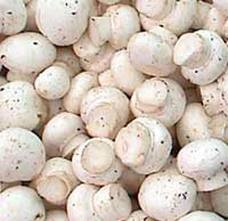BY NDUMISO TSHUMA
To boost agriculture in Matabeleland and empower local farmers, the Matabeleland Development Initiative (MDI) has partnered with farmers to introduce diverse farming techniques and projects.
This initiative aims to equip farmers with the skills and knowledge needed to diversify their agricultural practices and enhance productivity.
At a recent event hosted by the Matabeleland Development Initiative(MDI), Sibonokuhle Khumalo, the head coordinator and spokesperson for the event, shared valuable insights on starting farming ventures in mushroom farming, rose farming, goat farming, and fishery farming (Aquaculture).
Khumalo said there is potential for these farming ventures to contribute to the economic development of Zimbabwe and improve livelihoods for farmers.
“Goats require low maintenance, in general. They require less food and water compared to other stocks. Most have taken to high-breed goats such as Boer Goats, Kalahari goats and a few cross-breeders. The types of goats usually bred in Zimbabwe are the Boaer, Kiko, Mashona, Matabele for meat, Kalahri and Savana. One can start on a small scale of 1-10 goats. Medium scale is usually 100-500 goats and a Large scale is 1000 and more. Boer goats grow faster and have high fertility so it is advisable to start with those.
They have meaty carcasses and a good line of Boer will reach the butcher at the age of three months. The gestation period of goats is 145 to 151 days. The price for a first-generation buck goat is US$250, second-generation is US $300 and third-generation is US $600. These goats can be exported to the Middle East in places like Dubia for profit to farmers. Most people do not know this information that their produce can be exported to the Middle East but can get their information through Zimtrade which explains all the trading processes that can be done abroad,” said Khumalo.
Fish farming is another growing trend in Zimbabwe, with Bream, Trout, and Kapenta being popular choices. Khumalo explained that fish farming is affordable and profitable, requiring an initial investment of approximately $780 for equipment. A 100m² pond can yield a gross profit of about $2,100. Fish farming, though slow, offers significant returns with proper management and feeding. Currently, fish are sold in local shops for $3 to $4 each.
In rose farming, Khumalo stressed the importance of sunlight and soil quality. Roses require rich organic soil and consistent watering. She pointed out that roses bloom in the first year, with better yields in subsequent years. Farmers can start rose farming in backyards, greenhouses, or fields, with a high-profit potential due to the constant demand for roses on various occasions.
Thandi Gumede, a mushroom farmer from Njube, Bulawayo, shared her experience and emphasised the health benefits of mushrooms as a meat substitute. Gumede highlighted the simplicity of mushroom farming, which can be done in limited spaces, and its therapeutic value, especially for older individuals. She noted that dried mushrooms are more profitable than fresh ones and mentioned the high demand for Shitake, Gourmet Oyster, and Maitake mushrooms in Zimbabwe.

